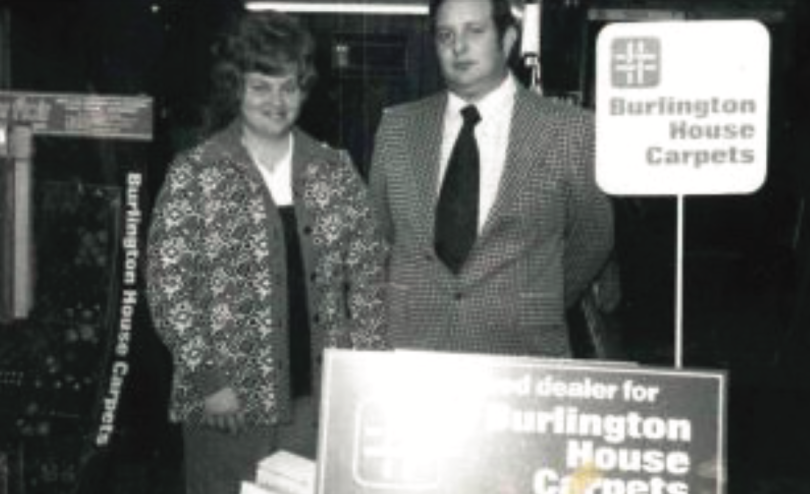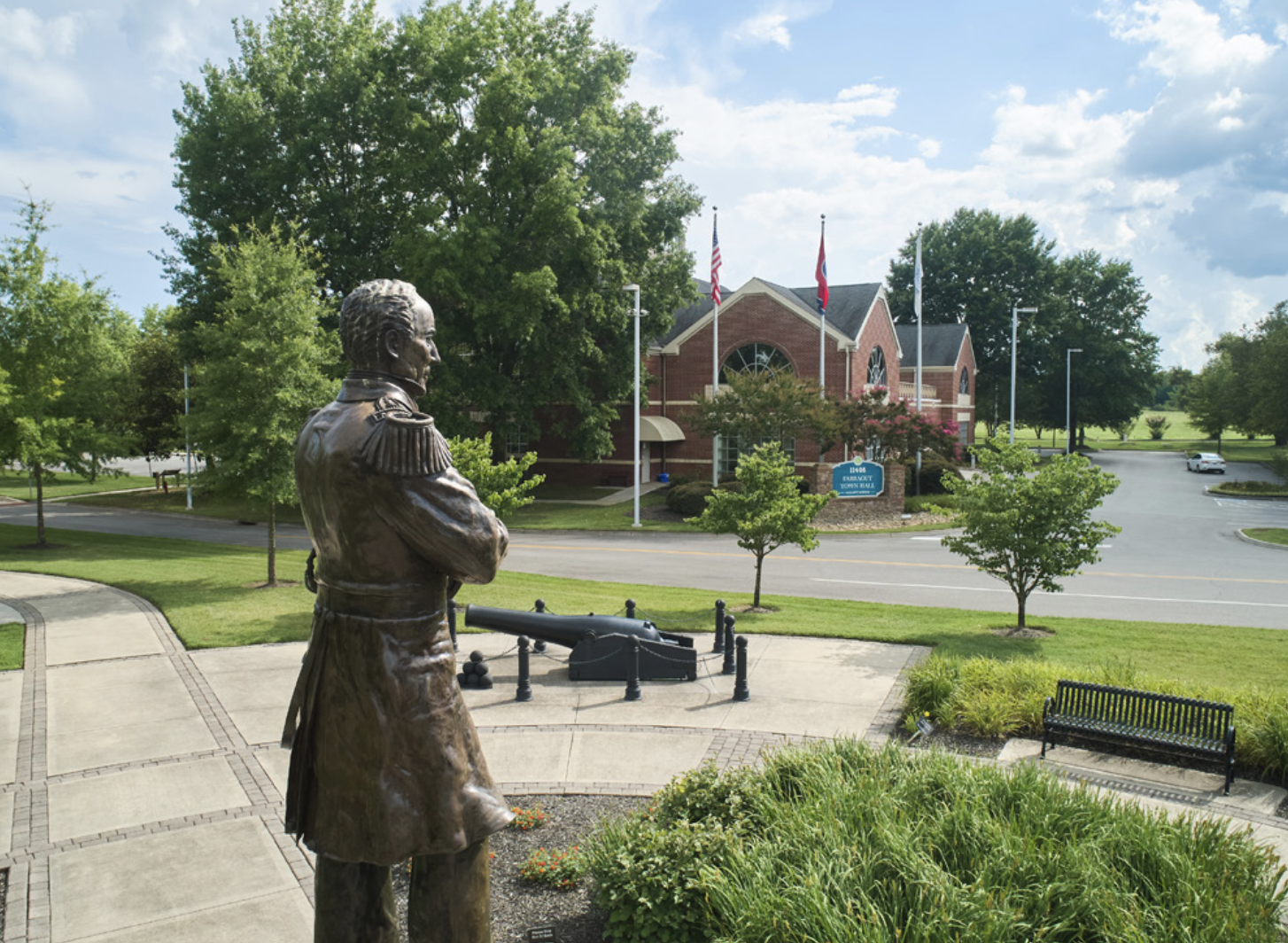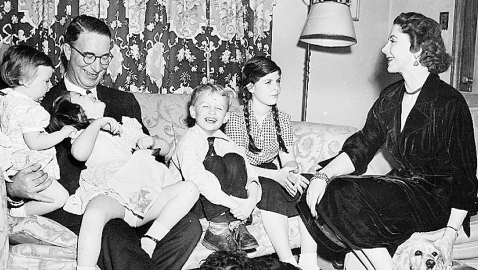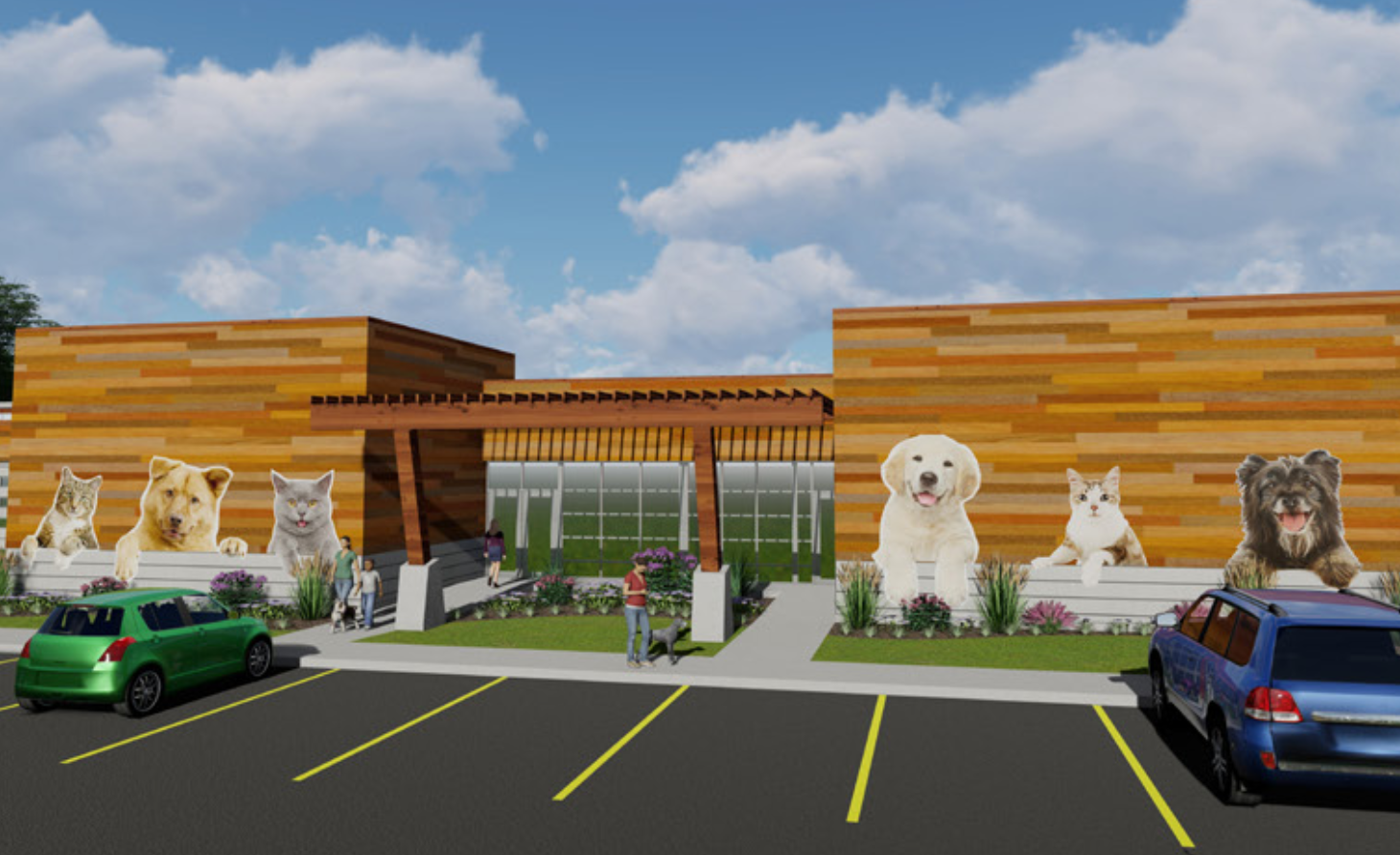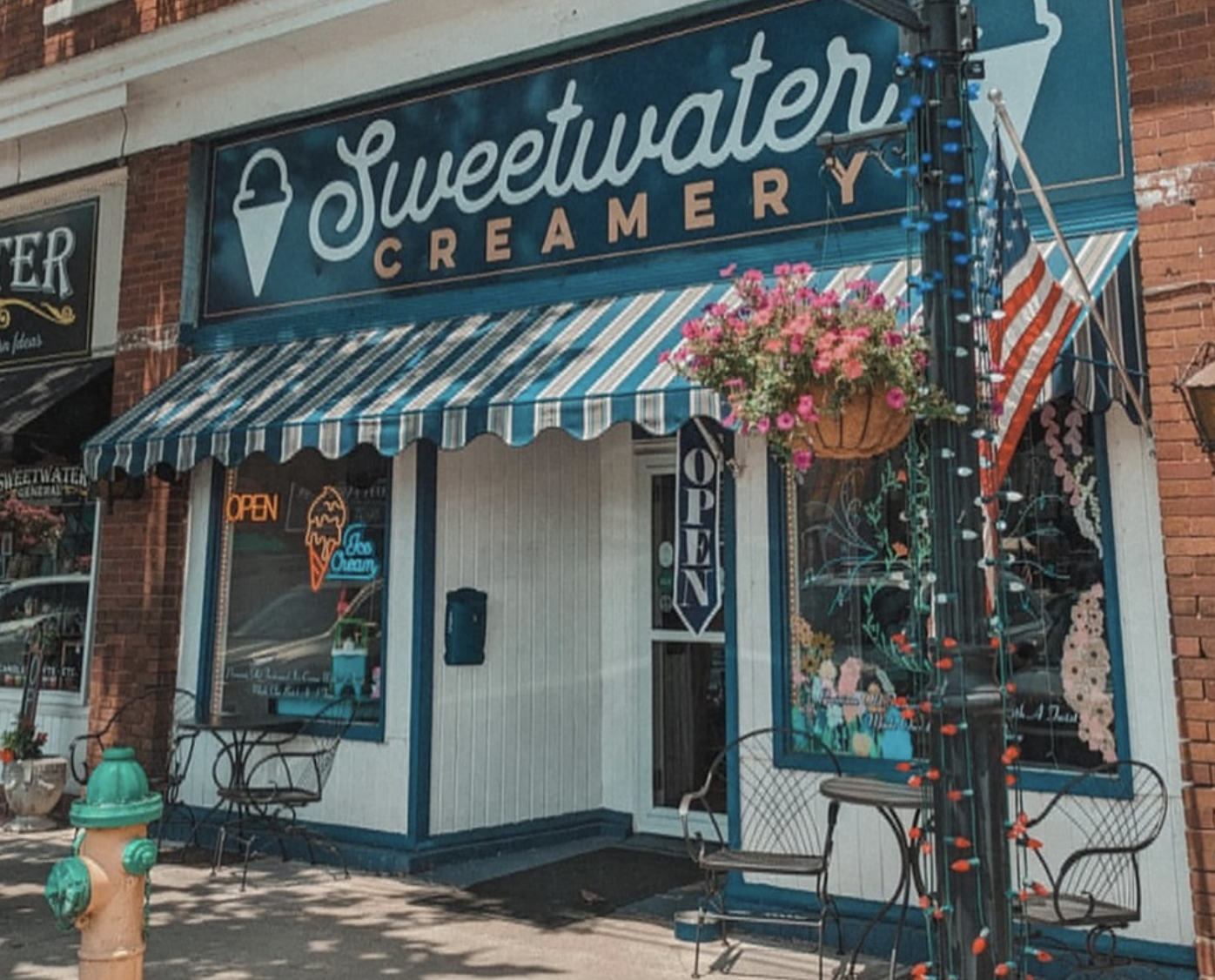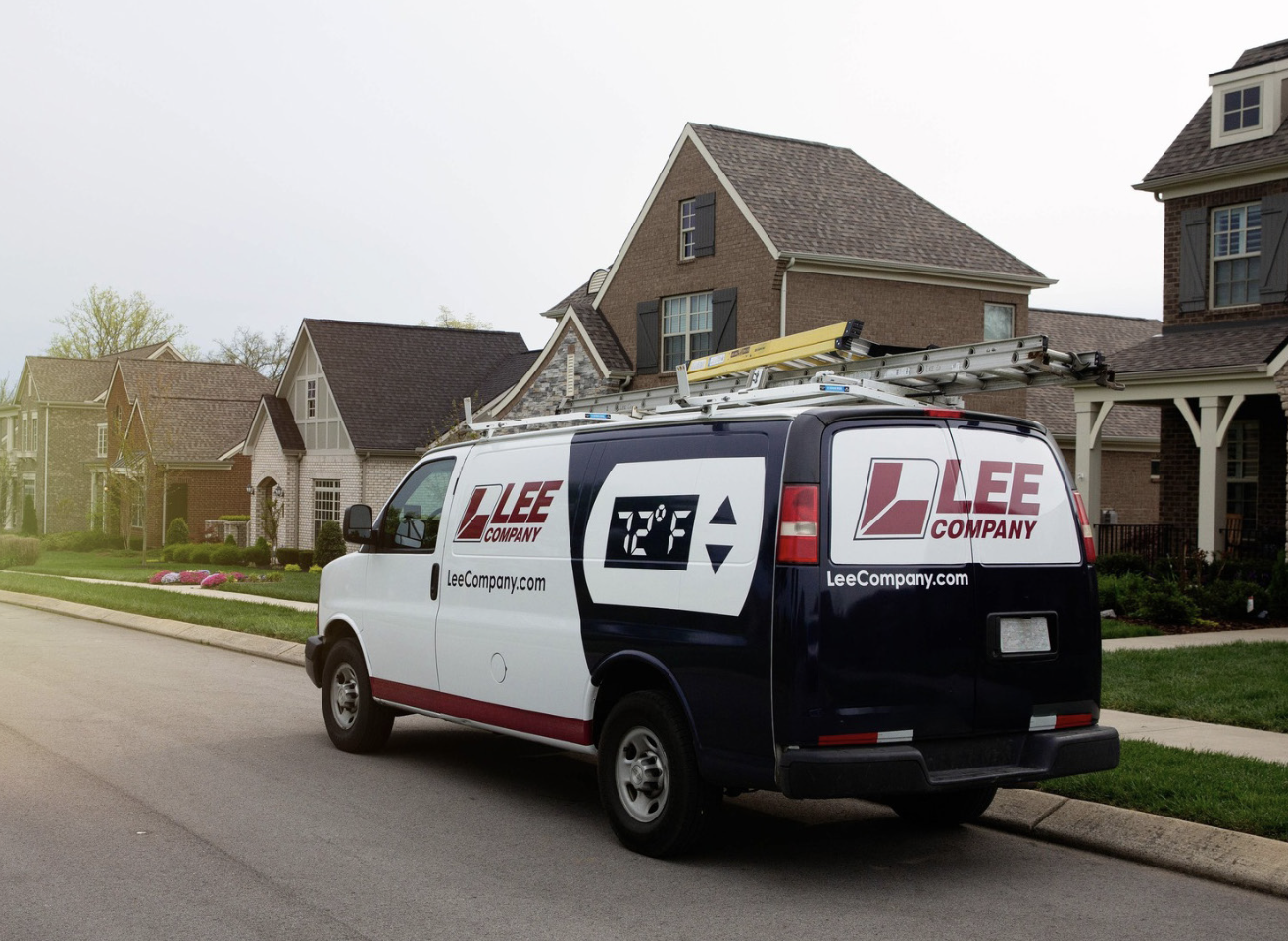Mrs. Hayes was supposed to be off duty the day she met her son. She was a nurse at Knox County Child and Family Services when one day, a 19-year-old woman arrived cradling a young baby, just a few weeks old. The woman said she wasn’t going to be able to keep him and wanted to put him up for adoption. Mrs. Hayes interviewed the woman and told her to take the baby back home for a few days before letting them know for sure that this is what she wanted to do. Four days later, she confirmed that she wanted to give the baby up for adoption. In the end, Mrs. Hayes would personally adopt him.
That baby was David Hayes, owner of David’s Abbey Carpet & Floors. I sit with him in our office conference room as he tells me his story.
“I could not have been adopted by a better family,” he says. “We were not rich in money but rich in love.”
David explains that, when he first went to school, kids would talk about him being adopted.
“Well, I didn’t know what that was,” David says. “I went home and told [my parents] and they sat me down and explained to me exactly what it was…” They said that if he ever wanted to know about his birth mother, “the adoption papers are in the cedar chest in the bedroom.’”
David didn’t look into this until he was an adult. One day, he was listening to the radio while driving and heard the story of a reunion of an adoptee with his birth parents. This sparked a curiosity in David, and on Thanksgiving, he asked his adopted parents, and they gave him all the information and papers they had.
“From that, I became obsessed with trying to find the birth mother,” David says, “for the purpose of telling her, ‘Thank you for giving me life.’”
Unfortunately, tracking down adoption records was a lot more difficult then than it is now. He would search for years.
It was during this time that David founded his business. I ask him about it, and he reclines in his chair, smiles, and says, “In real life, I’m a milkman.”
Indeed, David was hired straight out of high school by Mayfield Dairy where he worked for 11 years. He served as a milkman then a supervisor, but he wanted to be a salesman. Unfortunately, his boss said that he needed a college degree, and with a wife and three kids, David just didn’t have time to go to college, nor did he believe he was meant to. Nevertheless, David was anxious to sell, so he started his own part-time side-business out of his basement, calling it Hayes Carpet.
He explains, “When I built a house in 1970, I had a friend of mine I bought carpet from, and I started moonlighting with him… We started in January 21 of 1973, and we went to the Atlanta market, and we found us a supplier or two that would sell to us, and we went from there.”
Strangely, many of the suppliers seemed suspicious of them and turned them down. David wasn’t sure why until one day when he got a call from a sales tax guy asking if he was connected to the former Hayes Carpet company on Clinton highway. David said he wasn’t.
“Then you might want to change your name,” the man said. “The former Hayes Carpet closed up for non-payment of taxes.”
Suddenly, David understood why the suppliers had been so suspicious. He quickly changed the company name to David’s Carpet Sales.
For a few months, he worked both jobs—Mayfield and his carpet company. Then, in September, his branch manager told him he had to decide if he wanted to be in the carpet business or the milk business. Now, David had been working since 4 in the morning and it was now 5 in the afternoon with another hour worth of work remaining, so this didn’t sit well with him, and he promptly turned in his notice.
“Don’t do that,” the manager said. “You need to think about this.”
“I did,” David responded. “You told me I needed to make a decision, and I made one.”
After finishing his last hour of work, David loaded up his truck and started home when suddenly it hit him—he was going to have to tell his wife, Judy, now pregnant with their fourth child, that he had quit his job to run his carpet business despite having no money and no business education. He spent the drive working up his courage before walking in and telling her what had happened.
“I’m working my notice, and in 30 days, we’ll be full time in the carpet business,” he said.
Judy was silent for a moment before, supportive as always, she said, “That’s okay. We’ll make it.”
There were times when it was difficult. David recalled, “When I would go to Georgia to purchase carpet, I would write checks that I did not have money in the bank for, but I made sure I covered each check before they would clear the bank. I never bounced a check, thanks to the bank manager, but somedays it was close!”
A few years later, David learned that Knoxville was scheduled to host an upcoming World’s Fair. He did a six-month study of where most of his business was coming from and decided he needed a store in West Knoxville. At first, they were doing well, but then several clients ended up not paying their bills, and he lost hundreds of thousands in a time where he didn’t have any money. He went to the bank for a $60,000 loan, but they turned him down, so David left, unsure how he could remain in business.
The next day, he was visited by one of the bank officers who he’d gone to school with. The officer asked, “David, if the bank makes you this loan, do you think you’ll make it?”
“I think I’ll make it,” David said, “but if I don’t, you’ll be paid someday.”
“That’s all I need to know,” the officer said. A few hours later, David got a call approving the loan.
As David tells this story, my boss, the owner of this magazine, says, “It’s not easy being in business, is it?”
“No, it’s not easy,” David agrees, “but there again, the Lord put someone in front of me who could help me, and it worked. And life’s not been easy for 50 years, but it’s been good. My goal in business is to do what’s right. Sometimes it makes no sense to do what’s right financially, but you do what’s right, and it pays off.”
Fifty years after its founding, David’s Abbey & Carpet is running strong, and David has built an incredible legacy for his children.
A Christian, David sums up his journey by saying, “The Lord has blessed us all the way through this whole thing.” Even when David makes mistakes, God has seen him through. “It’s only by the grace of God,” he says.
Meanwhile, David was still searching for his birth mother. He became involved in a movement called Roots which connected adopted people and birth parents. This group was involved in getting the laws changed to make it easier for people to access their adoption records. Through this, David was able to find his birth mother living just two blocks from his now-adult daughters.
“She never would let me meet with her,” David says of his birth mother. “She told me, ‘I don’t have anything to say. You say whatever you want to, and that’s the best I can do.’ And so, every Mother’s Day after that, for as long as she was alive, I sent her cards—I sent her non-invasive cards—but I respected what she did.” She gave him life, and for that, he is forever grateful.
When she died, David only learned about it by reading it in the newspaper. Though they’d never met, he attended the funeral, where only a single person knew who he was. In the eulogy, the pastor talked about how sad it was that she had desperately wanted a child but could never have any. No one knew that her only son was sitting there among them.
A week after the funeral, David contacted his birth mother’s sister who couldn’t believe she had a nephew she’d never known about. After confirming David’s identity, she invited him to drive out to Georgia to meet the family. As he pulled into their driveway, he saw decorations and yellow ribbons tied all over the trees and sixteen brand-new family members excitedly waiting to meet him—a family reunion.



